I’ve always loved making things and working with wood, so after decades playing ukuleles it didn’t take long before I wanted to make some.
From my small workshop in South London I make sopranos, tenors and some more unusual ukuleles that I’ve always wanted to exist but have never found. Sometimes if you want something to exist, you have to make it yourself.
If you’d like one of my instruments, please have a look at the Ukulele Models and the Ukuleles Available Now pages and send me a message.
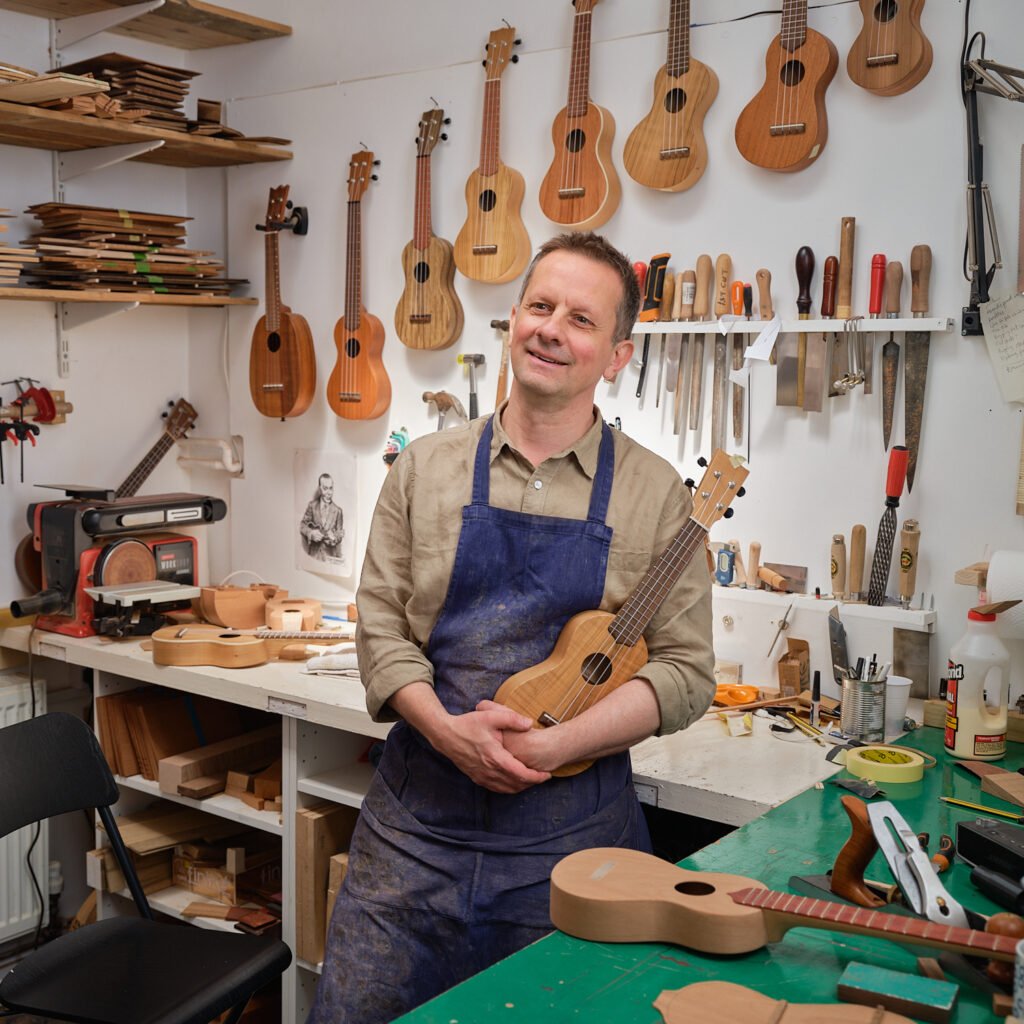
I’ve always loved making things and working with wood, so after decades playing ukuleles it didn’t take long before I wanted to make some.
From my small workshop in South London I make sopranos, tenors and some more unusual ukuleles that I’ve always wanted to exist but have never found. Sometimes if you want something to exist, you have to make it yourself.

If you’d like one of my instruments, please have a look at the Ukulele Models and the Ukuleles Available Now pages and send me a message.
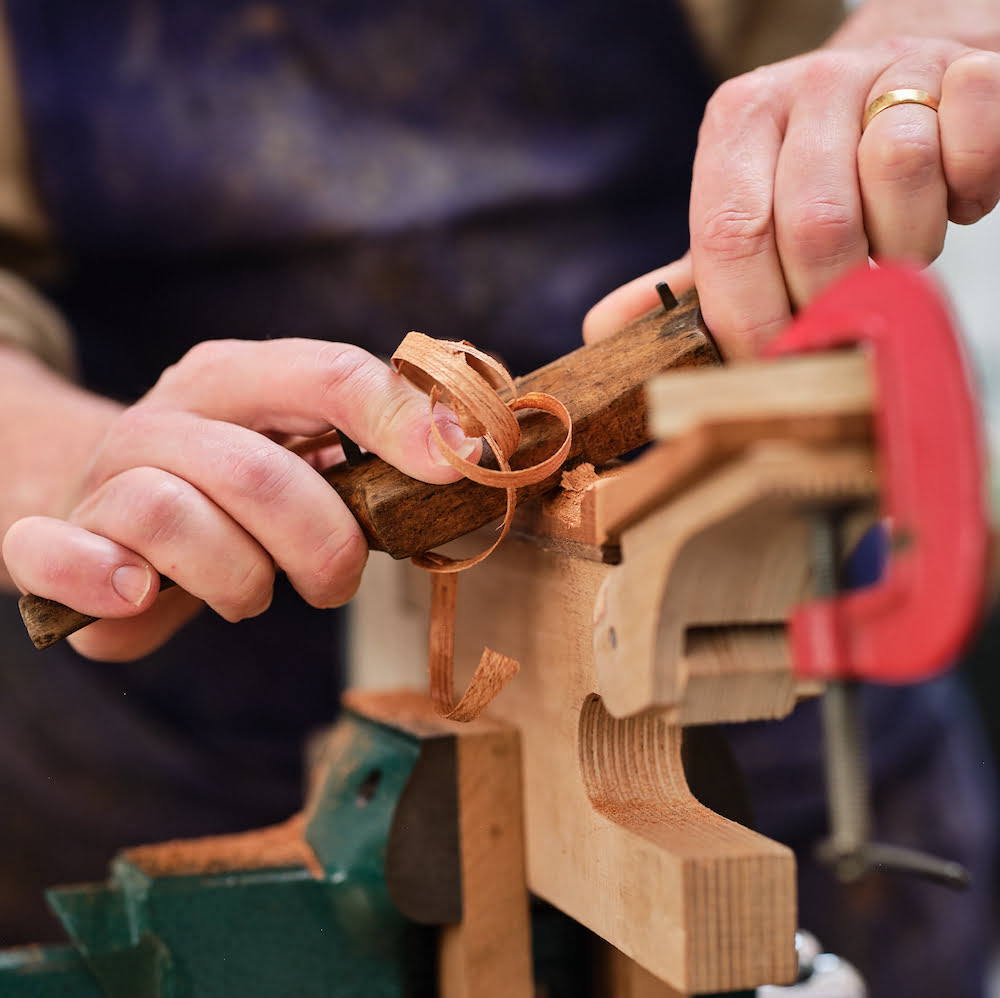
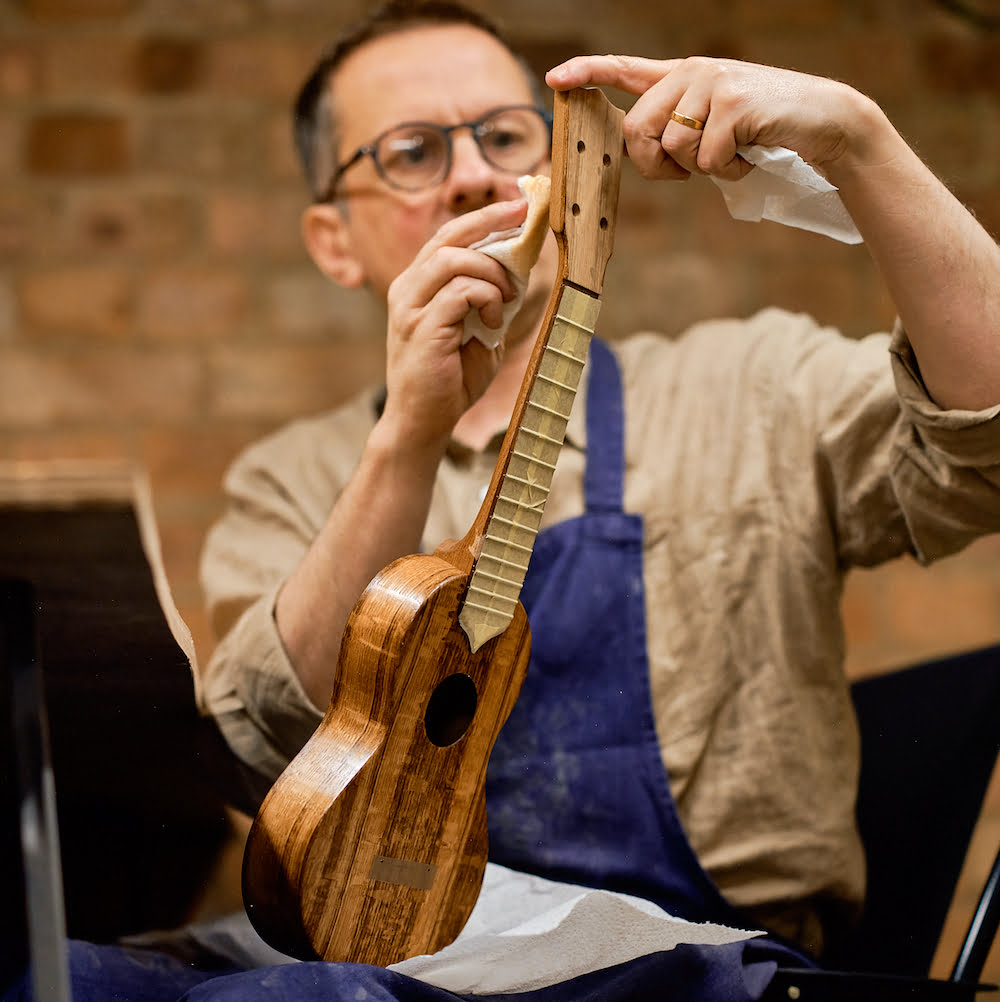

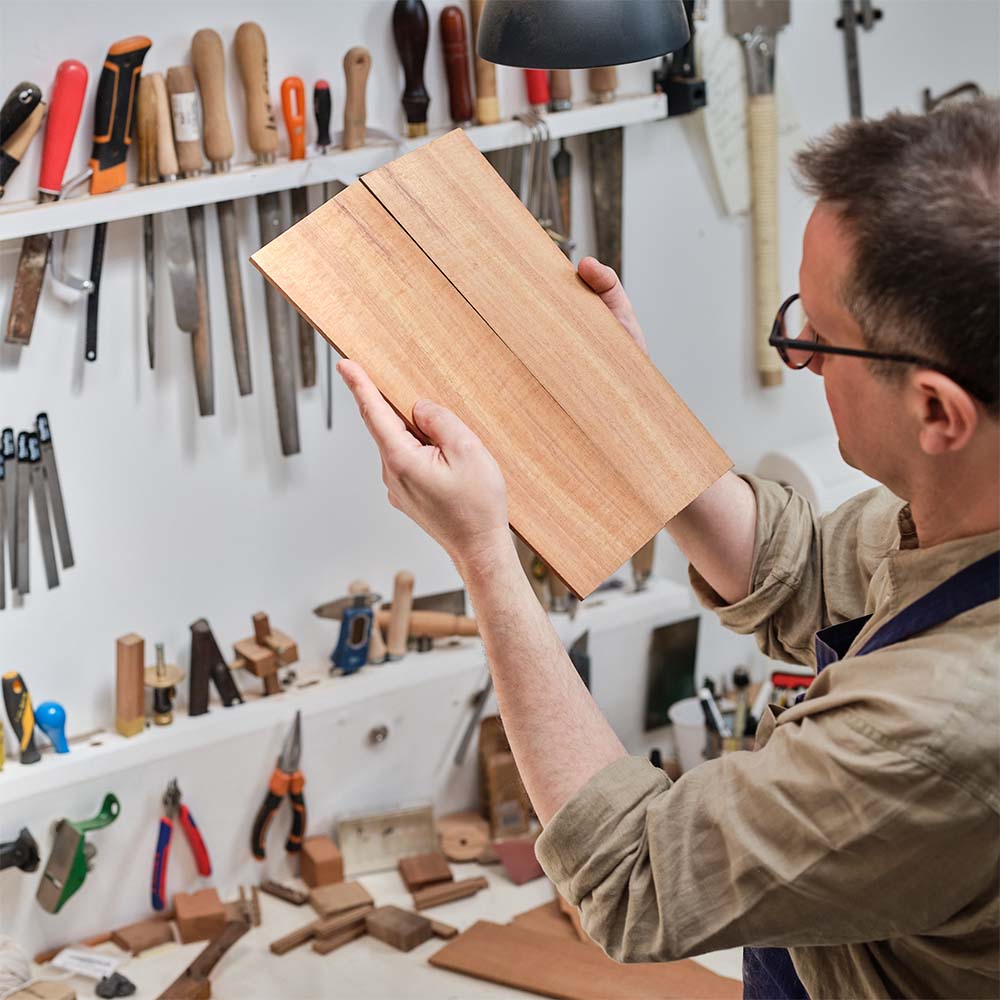
Ukuleles are so small that there shouldn’t be a need to chop down any more trees. I use native British hardwoods and high-quality repurposed wood—I often recycle timber that larger-scale craftspeople cast aside.
Traditionally, ukuleles are made from Koa, a native Hawaiian hardwood, but all sorts of woods work great for ukuleles – mahogany, cherry, alder, and oak, to name just a few. Each wood brings its unique character to the instrument’s tone while retaining that unmistakable ukulele sound.
These days you can buy a good quality factory-made ukulele for very little money and if that’s what you want, I’d certainly advise you to get one.
My ukuleles take a long time to make and the price has to reflect this. When you buy one of my own ukuleles, you’re not only supporting a craftsperson (and instrument-making as a craft), you’re getting a one-of-a-kind, completely unique ukulele which sounds great and plays like a dream. My blood, sweat, joy and tears goes into every single one, down to every fret, every brace, every drop of glue.
And don’t forget that when you own a Will Grove-White Ukulele you’re owning a little piece of ukulele history – a ukulele made by one of only eight people in the world to have plucked their ukuleles at Carnegie Hall, Sydney Opera House, The Royal Albert Hall and at a private party for Queen Elizabeth II . Oh yes, and at the North Pole for a freezing group of polar research scientists.
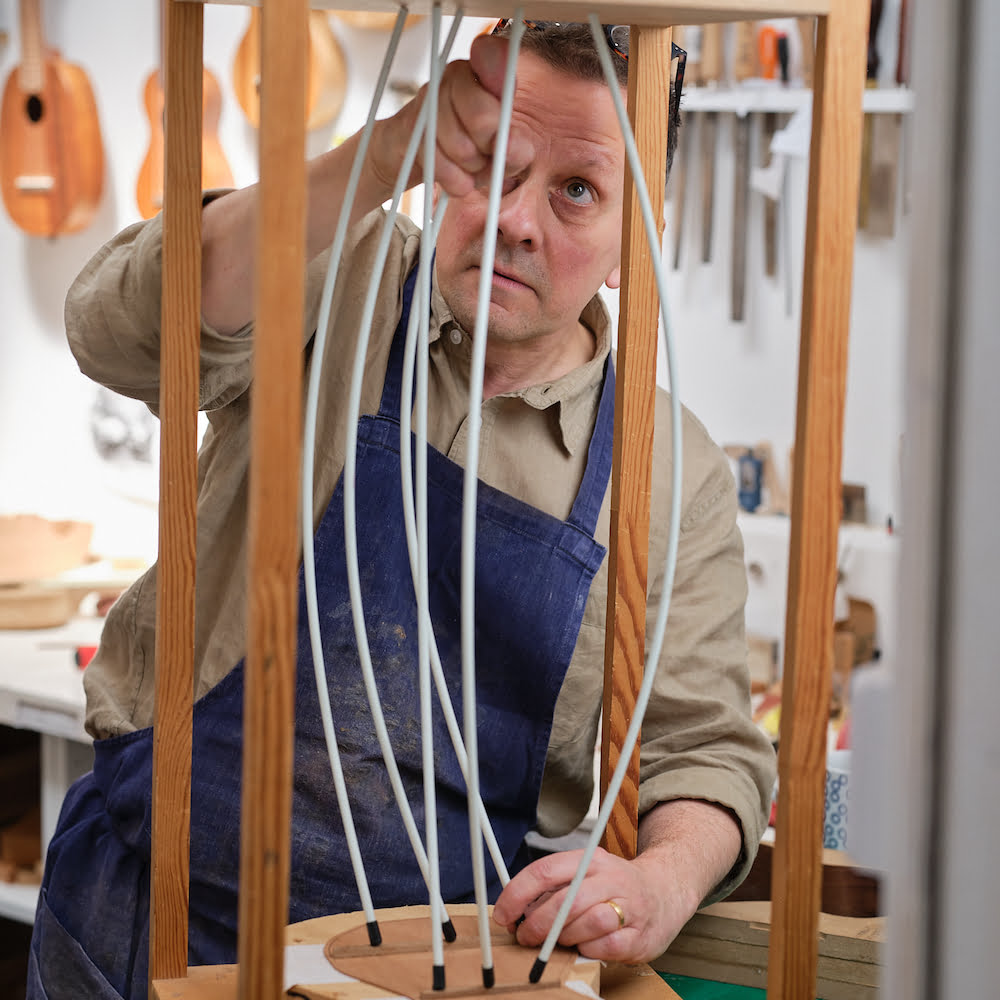
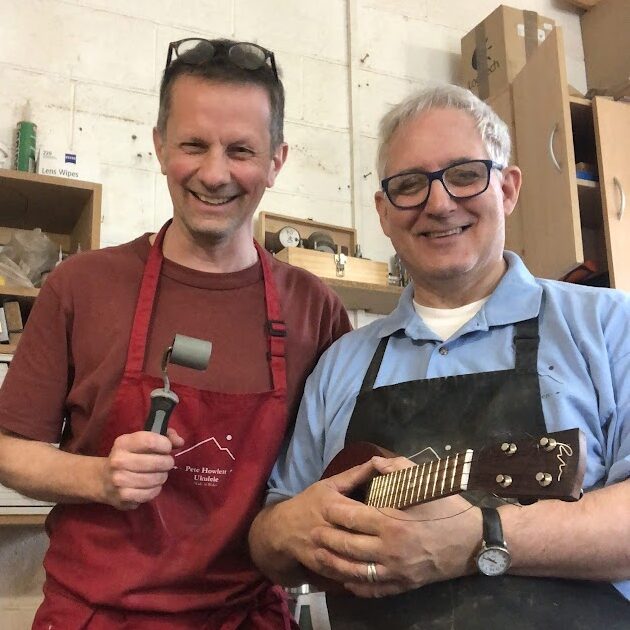
As well as an obsession with ukuleles and homemade music I’ve also had a lifelong love of building wooden automata, inspired by the great automata maker Paul Spooner. In my twenties I made and sold my own automata from my workshop at Cockpit Studios in London until the volume of concerts with the Ukulele Orchestra meant I had to down tools and head off for our ukulele adventures on the road.
Having now hung up my Ukulele Orchestra touring boots, I’ve been able to refocus on my love of making things, while sticking with the ukulele, of course. I travelled around the UK visiting ukulele makers I’d met over the years and spent an amazing internship with master ukulele builder Pete Howlett, pictured, who continues to mentor me. I moved into my small workshop in South London and have been happily whittling away there ever since.
I can’t stress how generous other makers have been with their knowledge – I’d like to raise a glass to Marco Todeschini, Liam Kirby, Aaron Keim, Ken Timms, Dave Morgan, Andrew ‘Scrim’ Scrimshaw, Andy Miles and Professor Chris.
Hidden deep inside each of my ukuleles sits a tiny person – a constant companion to your strumming and plucking. I’ve alway loved small things and even recorded a whole album using only miniature instruments, ‘small fry’. From cooking my children tiny English breakfasts (using fried quails eggs and cherry tomatoes) to my collection of miniature automata, little things have always been in my life. I thought it would be a nice touch to add something tiny to the already diminutive ukulele. People have asked me if I could put mini animals or other things inside, and the answer is of course, yes! Just ask.
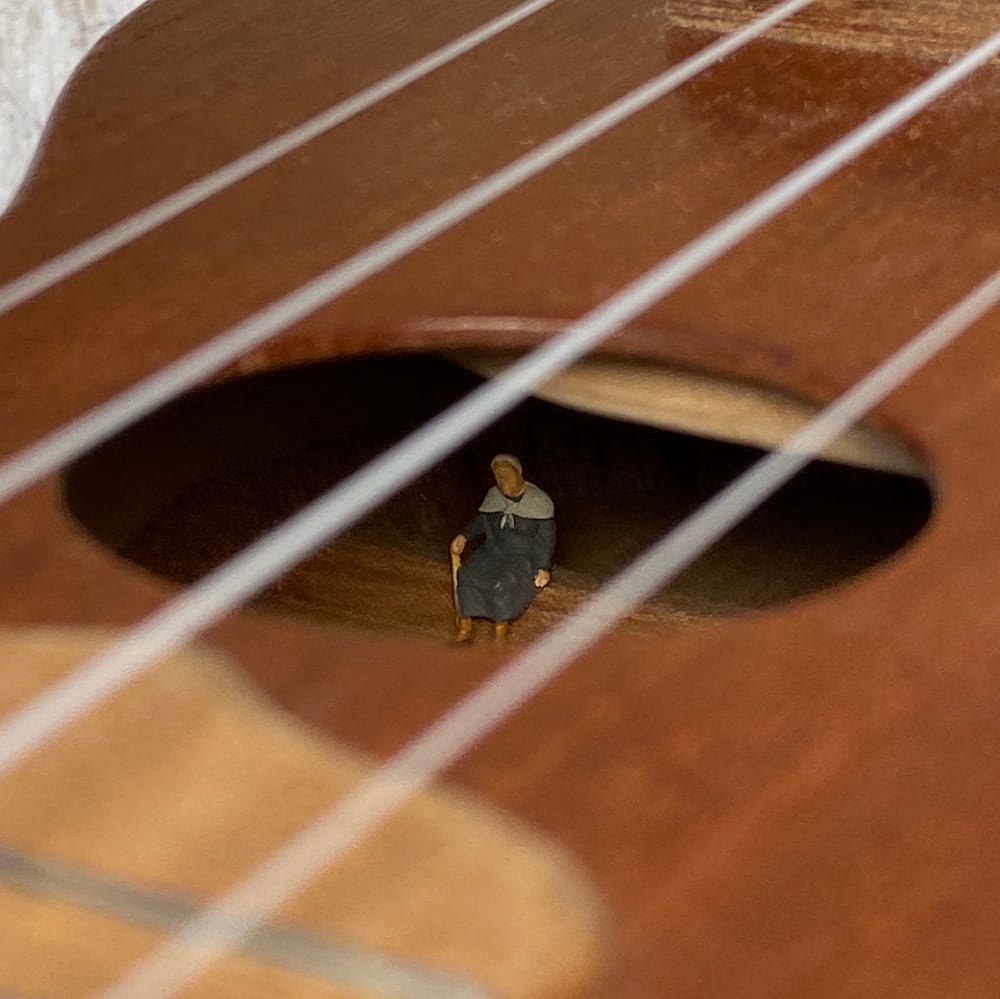
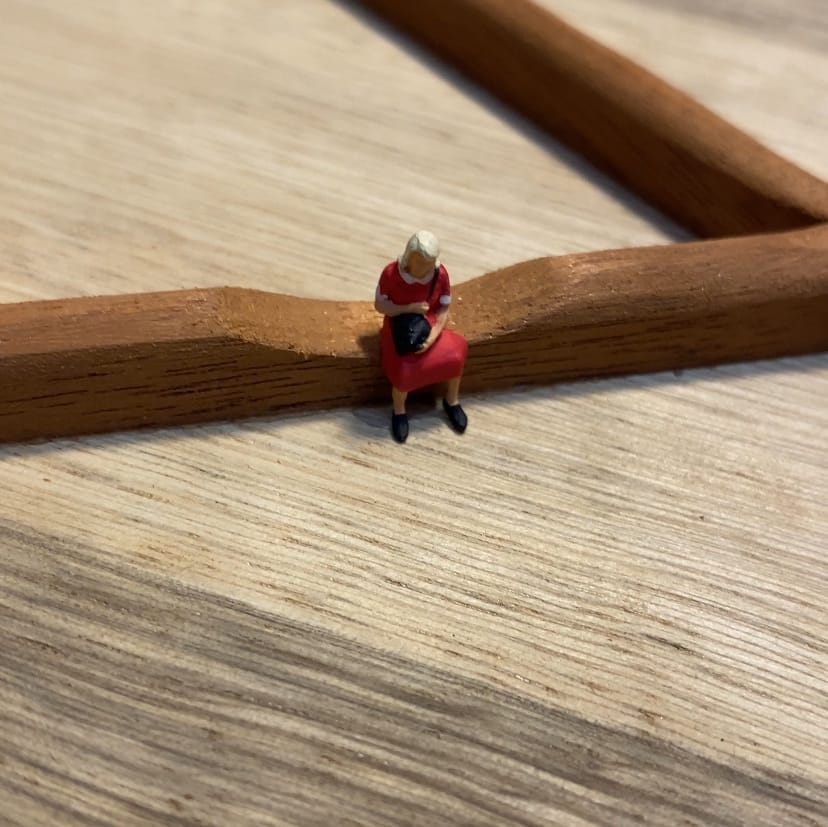
My ukuleles are entirely handmade by me and are built to my own design, inspired by the classic Martin ukuleles but with my own twist. I love curvy bodied ukuleles but I’ve found that most instruments have flat topped bodies, where they meet the neck. Unlike most ukes out there, my ukulele necks join their bodies on a curve rather than a flat 90 degree angle. This is only possible because of the unique way that my ukes are built, and which also allows me to make the completely unique Wonkylele.
In terms of the extras – strings, tuners etc., I use high quality accessories in my ukuleles – why wouldn’t you when they take so much time and focus to make? The tuners are usually Der Jung, Gotoh, or Grover. I use Aquila Strings which are made by master stringmaker Mimmo Peruffo in his small factory close to Venice in Italy. Mimmo makes amazing strings for a whole host of instruments, from the harp to the oud via the violin.
My ukulele labels (inside the soundhole) are handmade in Brixton, South London, by letterpress maestro Pete Gibbons at the Railton Press. Using hand-set type in a miniature vintage printing press, each label is hand-cut, inked and printed and then signed and numbered by me. You can see a video of Pete making the labels HERE.
I don’t currently supply cases for my ukuleles. Cases are a personal choice but I’m happy to advise. And before you ask, my Wonkyleles fit happily into a regular soprano case so you can easily transport one to your next off-kilter performance.
Sign up for my mailing list, and I'll email you when I have new ukuleles for sale (or some urgent ukulele news that can't wait). Once you've subscribed here, don't forget to confirm your subscription in the email you'll receive.
